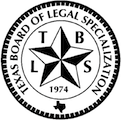Chapter 22 of the Texas’s Penal Code defines family violence as “an act by a member of a family or household against another member of the family or household that is intended to result in physical harm, bodily injury, assault, or sexual assault or that is a threat that reasonably places the member in fear of imminent physical harm, bodily injury, assault, or sexual assault, but does not include defensive measures to protect oneself.” Committing an act of violence against ones partner or family member is a serious crime in the State of Texas. The Dallas-Fort Worth Police Department has an entire unit dedicated to the investigation of domestic abuse cases, while the Harris County District Attorney’s Office has similarly unit devoted to the prosecution of these cases. It is essential that you have an experienced attorney who can provide the necessary information and assistance that you will need to defend your case if you are accused of one of these crimes.
A person is guilty of domestic assault in Texas if he commits an assault against a family member, household member, or a current or past dating partner.
Assault/Family Violence Defined in Texas
An assault consists of:
intentionally, knowingly or recklessly causing bodily injury to another person
intentionally or knowingly threatening another person with imminent bodily injury; or
intentionally or knowingly causing physical contact with another that the offender knows or reasonably should know the victim will find provocative or offensive. (Tex. Penal Code Ann. §22.01.)
Domestic assault is a Class A misdemeanor if the defendant has no prior domestic assault convictions. The crime is a third degree felony if the defendant has any prior domestic assault conviction.
Continuous Violence Against the Family
In addition to assault crimes, a person in Texas can be convicted of the crime of continuous violence against the family if he commits two domestic assaults in twelve months. A defendant can be convicted of this crime without either assault having resulted in an arrest or conviction, and the two assaults need not have been committed against the same victim. This crime is a third degree felony.
Penalties for Domestic Violence Crimes
Domestic violence crimes are punishable in Texas as follows:
Class A misdemeanor – up to one year in jail or a fine up to $4,000, or both
3rd degree felony – from 2 to 10 years in prison and a fine up to $10,000
2nd degree felony – from 2 to 20 years in prison and a fine of up to $10,000, and
1st degree felony — from 5 to 99 years in prison and a fine up to $10,000.
A domestic violence case is a big deal when it comes to law, and more prone to false accusations. Often times, an individual spouse or partner can accuse you of violent acts for either personal gain or to score point in a child custody case.
Officers on the scene of a domestic disturbance are most times prepared to make an arrest without investigation or knowing the full details of the case they have on ground. Mistakes can be made, and an innocent person can be taken as the aggressor. Situations like this calls for the hiring of the assistance of a hardworking and experienced criminal defense attorney, to make sense of what really happened.
If you get convicted for any of domestic violence crimes, it can impact your life and hinder your life goals. Example of this is that, it can hinder your employment opportunities, prevent you from acquiring that professional license, and gaining access to your children. The social stigma one often experiences from this crimes is another burden.
Charges under domestic violence or abuse
Domestic assault
Domestic battery
Child abuse
Restraining and protective order hearing
Harassment and stalking.
Domestic Violence as defined under Texas Law
All cases of domestic violence are listed under chapter 22 of the Texas Penal Code and the Texas Family Code also has two different definitions for types of violence in domestic settings. There is no specific statute for domestic violence in the state of Texas.
The Texas Family Code 71.0021 defines dating violence as acts other than a defensive measure to protect oneself by an alleged offender that is committed against an alleged victim:
With whom the alleged offender has or has had a dating relationship; or because of the alleged victim’s marriage to or dating relationship with an individual with whom the alleged offender is or has been in a dating relationship or marriage.
The alleged act must also be intended to result in physical harm, bodily injury, assault, or sexual assault or that is a threat that reasonably places the victim in fear of imminent physical harm, bodily injury, assault, or sexual assault.
A dating relationship occurs between individuals or adults that have or had a continuing relationship of a romantic or intimate nature. Considerations for a dating relationship are:
How long or length of relationship
The type or nature of relationship
The frequency and nature of interaction of persons involved in the relationship.
The Texas Family Code 71.004 defines family violence as any of the following:
Any act by a member of a family or household against another member of the family or household that is intended to result in physical harm, bodily injury, assault, or sexual assault or that is a threat that reasonably places the member in fear of imminent physical harm, bodily injury, assault, or sexual assault, but does not include defensive measures to protect oneself or
The abuse by a member of a family or household towards a child of the family or household.
A household comprises of a unit of persons living together in the same dwelling space, irrespective of their relation. Any person who previously lived in a household can be considered a member of that household. Important members of a family or household are:
Domestic partners
Individuals in a relationship
Current or former spouses
Children of a current or former spouse
Siblings
Grandparents and grandchildren
Foster children or foster parents
Seriousness of Family Violence Charges:
The level of family violence charges filed is determined by several factors:
The amount injury caused, (ie: bodily injury or serious bodily injury).
Was a deadly weapon used,
previous convictions,
age of the victims.
impeding airway (choking cases)
Defenses Against Domestic Violence Charges in Texas
The most effective defense against a domestic violence will depend solely on the circumstances around the case. Some of these circumstances is the relationship between partners, nature of the offense committed, past incidence of domestic violence, and criminal history of defendant. Examples of possible defenses are:
Innocence: The offender has not actually committed the offense he or she is accused of, and the credibility of the accuser will be challenged.
Act of self-defense: The Texas Penal Code 9.31 clearly states that using force is justified against another party when and to the degree he or she reasonably believes that the force is immediately necessary to protect him or herself against the other person’s use of unlawful force. Verbal provocation is an exception to this law.
Defense of Third or Another Individual: If the offender reasonably believes that his or her intervention was necessary to protect another person. This is as stated under the Texas Penal Code 9.33.
Be open and discuss honestly all the aspect of your case with your attorney. This information will be important for the prosecution of your case to have the best possible representation.
What to Do if Falsely Accused of Domestic Violence in Dallas-Fort Worth Texas
A common misconception in domestic violence cases is that loved ones have the power to drop cases, and this is not true. The ability to dismiss or drop charges rests on the shoulder of the district attorney, and not the victims of the crime committed. There are times when prosecutors pursue false or exaggerated claims to make an offender an example for others.
It is advisable for victims to weigh their options before making an accusation of domestic violence against their partners. A good reason is; if you or your children have been physically harmed or are in danger. In this case, one must do everything they can to protect oneself, including getting help from law enforcement officer. To cap it all, never make an accusation to get back at a family member or out of spite.
Dallas-Fort worth Domestic Violence Attorney
For alleged offenders in these cases, having the representation of an experienced lawyer is critical. Carl Ceder has helped countless Texans accused of domestic violence crimes. He has the experience and expertise to fight for you. If you are arrested for domestic violence or another violent crime, your time to protect your rights is limited. If you are located in anywhere in the greater Dallas-Fort Worth area, including in Dallas County, Collin County, Denton County, Tarrant County, Rockwall County, and any other surrounding areas, contact The Law Offices of Carl David Ceder for assistance at 214.702.CARL(2275) or at 469.2000.DWI(394). You can also e-mail Carl directly, at [email protected]; or to the office for general inquiries at [email protected]. Phones should be answered 24 hours a day/7 days a week for immediate and prompt assistance. E-mail messages will try to be responded to with 24-48 hours, depending on whether Carl and his team is in trial and/or is busy working on a case for a contested hearing.





















